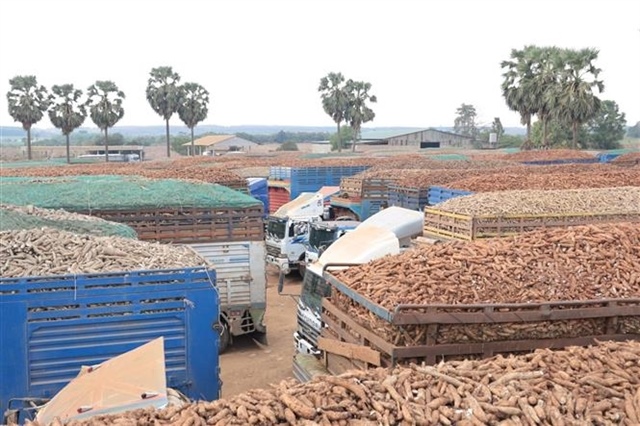Viet Nam’s PMI falls to 50.5 in September
Viet Nam’s PMI falls to 50.5 in September
The Viet Nam Manufacturing Purchasing Managers’ Index (PMI) fell to 50.5 in September, signalling only a marginal improvement in business conditions, and the weakest since February 2016. 
According to the latest survey released by Nikkei and IHS Markit on Tuesday, the reading was down from 51.4 in August, down for the second month in a row.
“The initial signs of a slowdown which we noted last month strengthened during September as demand waned again. Manufacturers responded to softer inflows of new work by bringing the recent period of output growth to an end and showing a reluctance to take on extra staff and purchase inputs. Concerns about demand conditions were also evident in relatively weak sentiment data,” Andrew Harker, Associate Director at IHS Markit, said.
"The latest PMI figures show that while the Vietnamese manufacturing sector has been one of the best performers globally in recent months, the slowdown in global trade flows amid trade tensions between the US and China is starting to impact firms negatively as we enter the final quarter of 2019,” Harker added.
Vietnamese manufacturing production dipped in September amid a further slowdown in the rate of new order growth, the report said, adding employment levels were also down slightly and business confidence was low.
Signs of weakening demand conditions meant a continued lack of pressure on prices. Input costs were up only marginally, while output prices fell again.
A slowdown in new order growth was seen at the end of the third quarter, with the latest modest increase the softest since August 2016. Weaker customer demand was mentioned by a number of respondents. This was also the case in international markets as new export orders rose at a slower pace.
Weaker growth of new business resulted in a slight fall in manufacturing production, the first in two years.
Staffing levels were also reduced at the end of the third quarter, ending a three-month sequence of job creation. Employee resignations were reported to have contributed to the fall. Reduced operating capacity meant firms were sometimes unable to complete orders during the month, leading to a modest increase in work backlogs.
Lower output requirements discouraged input buying in the sector, with growth in purchasing activity slowing to near-stagnation. Stocks of both purchases and finished goods also increased marginally.
Price reductions by some suppliers attempting to secure new business meant the rate of input cost inflation remained muted in September. Input prices rose marginally, and at a much weaker pace than the series average.
A lack of pressure from input costs allowed manufacturers to offer price reductions to customers to stimulate demand. Output prices decreased for the 10th month in a row. Although the latest reduction was slight, it was the most marked since June.
Suppliers' delivery times lengthened for the second month running, with delays sometimes linked to shortages of materials at vendors.
Business sentiment deteriorated for the second successive month in September. While firms generally remained optimistic of a rise in production over the coming year, confidence was the lowest since August 2018 and the second-weakest since future expectations data were added to the survey in April 2012. Worries about market demand were behind reduced sentiment, according to respondents.




















